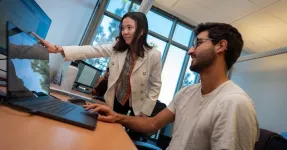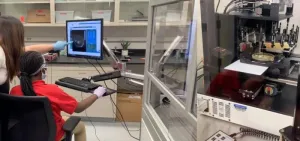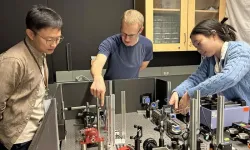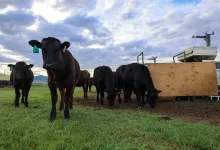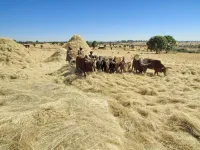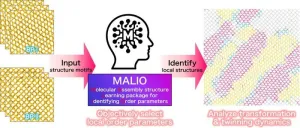(Press-News.org) INDIANAPOLIS -- A new final rule issued by the Centers for Medicare and Medicaid Services and the U.S. Department of Health and Human Services this week for a mandatory alternative payment model called the Increasing Organ Transplant Access (IOTA) Model aimed to improve the number of life-saving kidney transplants for patients whose kidneys have failed. The new rule will test whether performance-based upside or downside risk payments among a selected subset of kidney transplant hospitals increase access to kidney transplants for patients with end-stage kidney disease while maintaining or improving the quality of care and reducing Medicare costs.
Kidney failure affects more than 800,000 individuals in the U.S., and the coverage of care for patients with a diagnosis of kidney failure is covered under the U.S. Medicare End Stage Renal Disease program. Patients can be treated with either kidney transplantation or dialysis, and transplantation is the optimal treatment option for patients and more cost-effective than the alternative treatment option: dialysis. However, there are nearly 100,000 individuals on the kidney transplant waiting list, and about 3,000 new patients are added each month, but only about 25,000 kidney transplants are performed each year. More than 30 percent of deceased donor organs procured for transplantation are not used each year, and an average of 13 patients die per day while waiting for a transplant.
Studies conducted by Regenstrief Institute and Indiana University School of Medicine researchers Rachel Patzer, PhD, MPH; Katie Ross-Driscoll, PhD, MPH; and Adam Wilk, PhD; were repeatedly cited throughout the CMS Final Rule, issued by the Centers for Medicare and Medicaid Services on Nov. 26, 2024, and begins on July 1, 2025.
Dr. Patzer, who is a research scientist within the Center for Health Services Research as well as the President and CEO of the Regenstrief Institute, currently leads a research study funded by the National Institute on Minority Health and Health Disparities, part of the National Institutes of Health, focused on federal payment models for kidney disease, and is a leading expert in the topic of barriers and facilitators to improving access to kidney transplantation. She is also a member of the American Society of Nephrology Policy and Advocacy Committee, which aims to advance policies through federal legislation and regulations to promote kidney health, improve access to transplantation, and eliminate inequities in kidney disease and transplantation.
“Historically, kidney transplant centers have been incentivized to focus on improving survival and outcomes of patients who are transplanted but have ignored the population of patients who have not yet successfully been transplanted,” said Dr. Patzer. “The IOTA model seeks to change this by incentivizing transplant centers to focus on improving not only outcomes of transplant, but also access to transplant for patients with kidney failure.”
Rachel Patzer, PhD, MPH
In addition to her roles as president and CEO and research scientist with Regenstrief Institute, Rachel Patzer, PhD, MPH, serves as the Leonard Betley Professor of Surgery at Indiana University School of Medicine and an adjunct professor at IU Richard M. Fairbanks School of Public Health. Dr. Patzer is an epidemiologist and health services researcher with a strong focus on healthcare access, quality of healthcare delivery and outcomes. Her research centers on such key areas as disparities, social determinants of health, community-based participatory research, predictive analytics, healthcare quality and health policy evaluations. She has been instrumental in reshaping the national organ transplantation paradigm, advocating for a population health approach to inform quality measures, policies and equitable solutions.
Katie Ross-Driscoll, PhD, MPH
In addition to her role as a research scientist with Regenstrief Institute, Katie Ross-Driscoll, PhD, MPH, is an assistant professor of surgery at Indiana University School of Medicine. She is a health services researcher and epidemiologist focused on social epidemiology and its application to health disparities in patients with end-stage liver disease. Her work delves into the relationship between access to care, care quality and the resulting racial, socioeconomic and geographic disparities in outcomes for End-stage liver disease patients.
Adam S. Wilk, PhD
In addition to his role as a research scientist with the William M. Tierney Center for Health Services Research at Regenstrief Institute, Adam S. Wilk, PhD, is an associate professor at the Indiana University School of Medicine and a health economist working to improve access to high-quality and high-value healthcare services for populations with chronic diseases. His research focuses on state and national insurance programs (e.g., Medicaid and Medicare,) and the impact of these programs’ policies on access to needed care for individuals with low-income and disabilities, including improving access to and equity in kidney transplantation and home dialysis among adults with end-stage kidney disease.
END
CMS launches new mandatory kidney transplant payment model
Regenstrief Institute research cited as motivation for new federal rule
2024-12-02
ELSE PRESS RELEASES FROM THIS DATE:
Accelerating climate modeling with generative AI
2024-12-02
The algorithms behind generative AI tools like DallE, when combined with physics-based data, can be used to develop better ways to model the Earth’s climate. Computer scientists in Seattle and San Diego have now used this combination to create a model that is capable of predicting climate patterns over 100 years 25 times faster than the state of the art.
Specifically, the model, called Spherical DYffusion, can project 100 years of climate patterns in 25 hours–a simulation that would take weeks for other models. In addition, existing state-of-the-art models need to run on supercomputers. This model can run on GPU clusters in a research lab.
“Data-driven ...
Study details surprising biological mechanisms underlying severe COVID-19
2024-12-02
Severe COVID-19 arises in part from the SARS-CoV-2 virus’s impact on mitochondria, tiny oxygen-burning power plants in cells, which can help trigger a cascade of organ- and immune system-damaging events, suggests a study by investigators at Weill Cornell Medicine, Johns Hopkins Medicine, Children’s Hospital of Philadelphia, and the University of Pittsburgh School of Medicine, along with other members of the COVID-19 International Research Team.
Severe COVID-19 has been considered an inflammatory ...
University of Colorado Anschutz Medical Campus-led team receives up to $46 million to develop innovative treatment to cure blindness
2024-12-02
The University of Colorado Anschutz Medical Campus will receive up to $46 million from the Advanced Research Projects Agency for Health (ARPA-H) Transplantation of Human Eye Allografts (THEA) program to advance pioneering research aimed at curing total blindness through human eye transplantation.
The award will support the work of the Total Human Eye-allotransplantation Innovation Advancement (THEIA) project team led by CU.
The project is led by principal investigator and surgeon-scientist Kia Washington, MD, and co-principal investigator Christene A. Huang, ...
$1.7 million CDC grant will allow researchers to study spina bifida across the lifespan
2024-12-02
Researchers at the University of Arizona College of Medicine – Tucson received $1.7 million in funding from the Centers for Disease Control and Prevention to improve knowledge regarding the prevalence, mortality and health outcomes for people of all ages living with spina bifida.
Spina bifida is a birth defect that occurs when an embryo’s spinal cord does not properly close during the third and fourth weeks of pregnancy, resulting in a gap in the spine. According to the CDC, spina bifida occurs in 1 ...
Study: Even low levels of arsenic in drinking water raise kidney cancer risk
2024-12-02
New research findings from the Texas A&M University School of Public Health indicate that exposure to even low levels of arsenic poses significant health risks, including an increased risk of kidney cancer.
The incidence of kidney cancer in the United States rose by an average of 1.2 percent each year between 2011 and 2019 to become the seventh most common cancer. In the meantime, smoking — a well-established risk factor for kidney cancer — has continued to decline.
This led researchers to consider other possible contributing factors, including arsenic, a known cause of various cancers that is naturally occurring ...
How a middle schooler found a new compound in a piece of goose poop
2024-12-02
A group of young students became bonafide biomedical scientists before they even started high school. Through a partnership with a nearby university, the middle schoolers collected and analyzed environmental samples to find new antibiotic candidates. One unique sample, goose poop collected at a local park, had a bacterium that showed antibiotic activity and contained a novel compound that slowed the growth of human melanoma and ovarian cancer cells in lab tests.
Inequities in educational resources, especially those in science, engineering, technology and math (STEM), where ...
UBCO researchers engineer DNA to mimic biological catch bonds
2024-12-02
In a first-of-its-kind breakthrough, a team of UBC Okanagan researchers has developed an artificial adhesion system that closely mimics natural biological interactions.
Dr. Isaac Li and his team in the Irving K. Barber Faculty of Science study biophysics at the single-molecule and single-cell levels. Their research focuses on understanding how cells physically interact with each other and their environment, with the ultimate goal of developing innovative tools for disease diagnosis and therapy.
Two of Dr. Li’s doctoral students, Micah Yang and David Bakker, have engineered a new molecule that could transform how cells adhere to and communicate with one another.
Micah Yang, ...
Feeding grazing cattle seaweed cuts methane emissions by almost 40%
2024-12-02
Seaweed is once again showing promise for making cattle farming more sustainable. A new study by researchers at the University of California, Davis, found that feeding grazing beef cattle a seaweed supplement in pellet form reduced their methane emissions by almost 40% without affecting their health or weight. The study was published today (Dec. 2) in Proceedings of the National Academy of Sciences.
This is the first study to test seaweed on grazing beef cattle in the world. It follows previous studies that showed seaweed cut methane emissions 82% in feedlot cattle ...
Animal products improve child nutrition in Africa
2024-12-02
The consumption of milk products, eggs and fish has a positive effect on childhood development in Africa. This has been demonstrated in a recent study by the CABI's regional centre for Africa in Nairobi, Kenya and the University of Bonn. The researchers used representative data from five African countries with over 32,000 child observations. If the children had a diet containing animal products, they suffered less from malnutrition and related developmental deficiencies. The study has now been published in the journal PNAS.
Almost 150 million children under the age of five around the world suffer from serious growth and developmental ...
Dynamics of structural transformation for liquid crystalline blue phases
2024-12-02
Fukuoka and Tsukuba, Japan—Researchers have uncovered key insights about how liquid crystals, materials capable of forming complex ordered structures, transform between different phases. Published in PNAS, the study provides a clearer understanding of how these materials change their structures at the microscopic level. This research could provide a means to give a deeper insight into the transformation between different structures in a wider variety of materials.
Liquid crystals are materials that exhibit properties of both liquids and solids. They flow like liquids but can also ...
LAST 30 PRESS RELEASES:
New ‘scimitar-crested’ Spinosaurus species discovered in the central Sahara
“Cyborg” pancreatic organoids can monitor the maturation of islet cells
Technique to extract concepts from AI models can help steer and monitor model outputs
Study clarifies the cancer genome in domestic cats
Crested Spinosaurus fossil was aquatic, but lived 1,000 kilometers from the Tethys Sea
MULTI-evolve: Rapid evolution of complex multi-mutant proteins
A new method to steer AI output uncovers vulnerabilities and potential improvements
Why some objects in space look like snowmen
Flickering glacial climate may have shaped early human evolution
First AHA/ACC acute pulmonary embolism guideline: prompt diagnosis and treatment are key
Could “cyborg” transplants replace pancreatic tissue damaged by diabetes?
Hearing a molecule’s solo performance
Justice after trauma? Race, red tape keep sexual assault victims from compensation
Columbia researchers awarded ARPA-H funding to speed diagnosis of lymphatic disorders
James R. Downing, MD, to step down as president and CEO of St. Jude Children’s Research Hospital in late 2026
A remote-controlled CAR-T for safer immunotherapy
UT College of Veterinary Medicine dean elected Fellow of the American Academy of Microbiology
AERA selects 34 exemplary scholars as 2026 Fellows
Similar kinases play distinct roles in the brain
New research takes first step toward advance warnings of space weather
Scientists unlock a massive new ‘color palette’ for biomedical research by synthesizing non-natural amino acids
Brain cells drive endurance gains after exercise
Same-day hospital discharge is safe in selected patients after TAVI
Why do people living at high altitudes have better glucose control? The answer was in plain sight
Red blood cells soak up sugar at high altitude, protecting against diabetes
A new electrolyte points to stronger, safer batteries
Environment: Atmospheric pollution directly linked to rocket re-entry
Targeted radiation therapy improves quality of life outcomes for patients with multiple brain metastases
Cardiovascular events in women with prior cervical high-grade squamous intraepithelial lesion
Transplantation and employment earnings in kidney transplant recipients
[Press-News.org] CMS launches new mandatory kidney transplant payment modelRegenstrief Institute research cited as motivation for new federal rule
